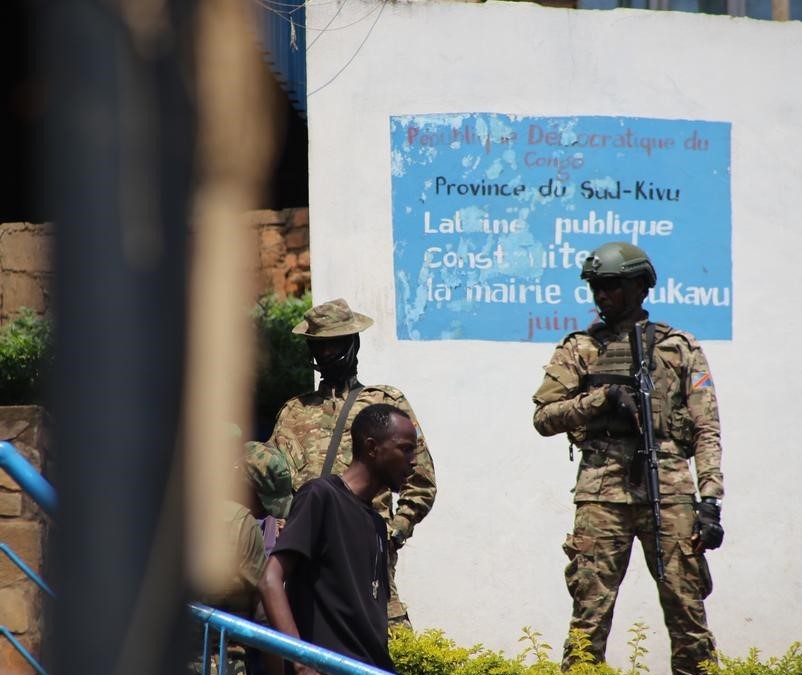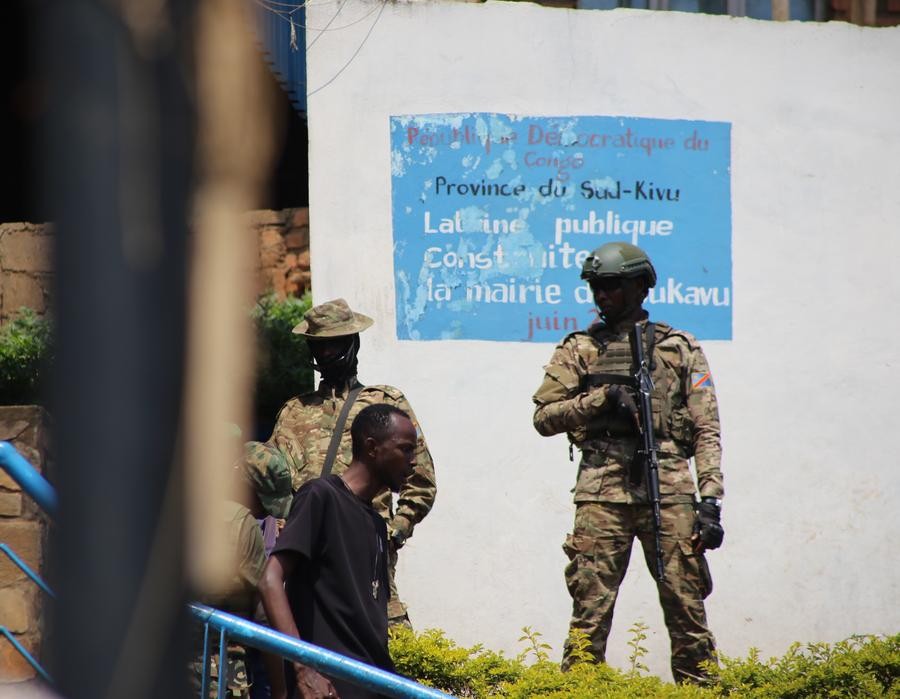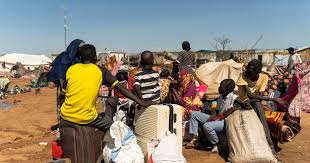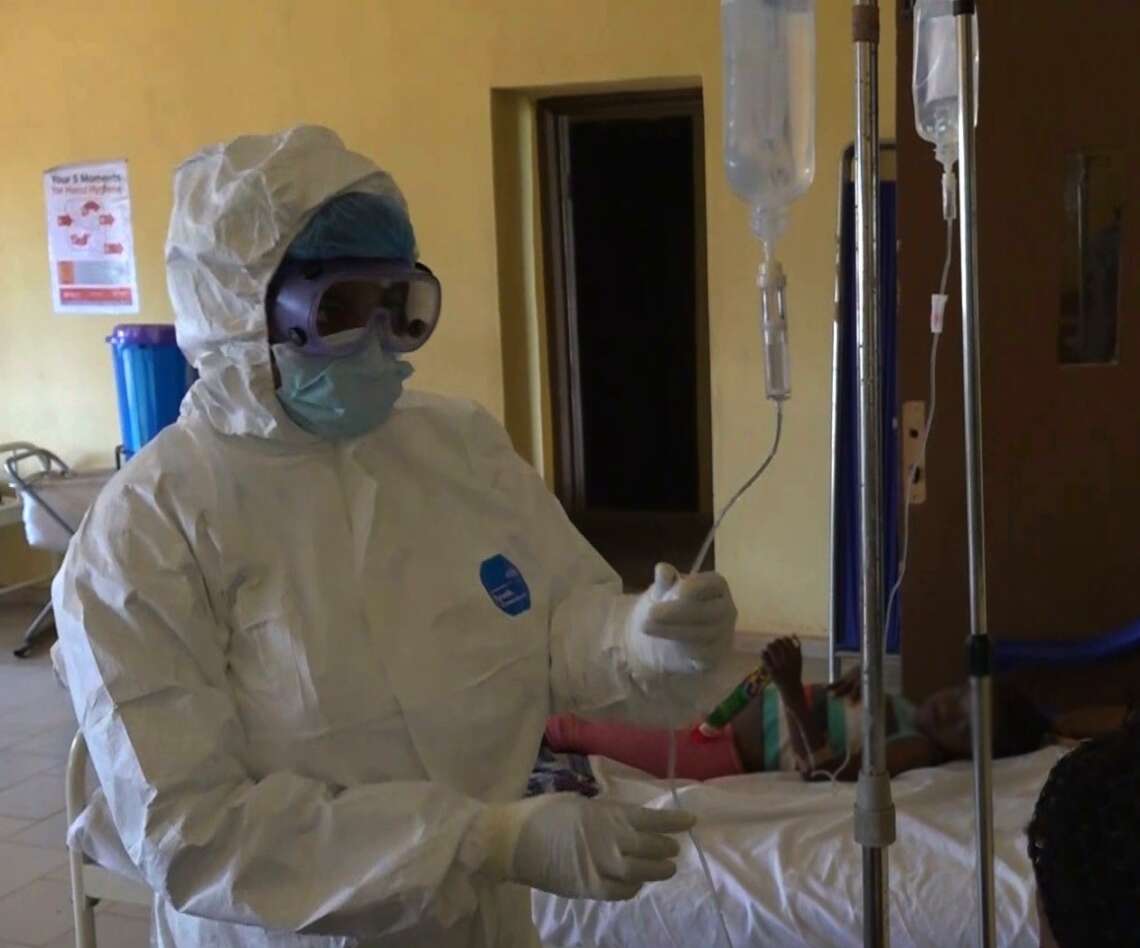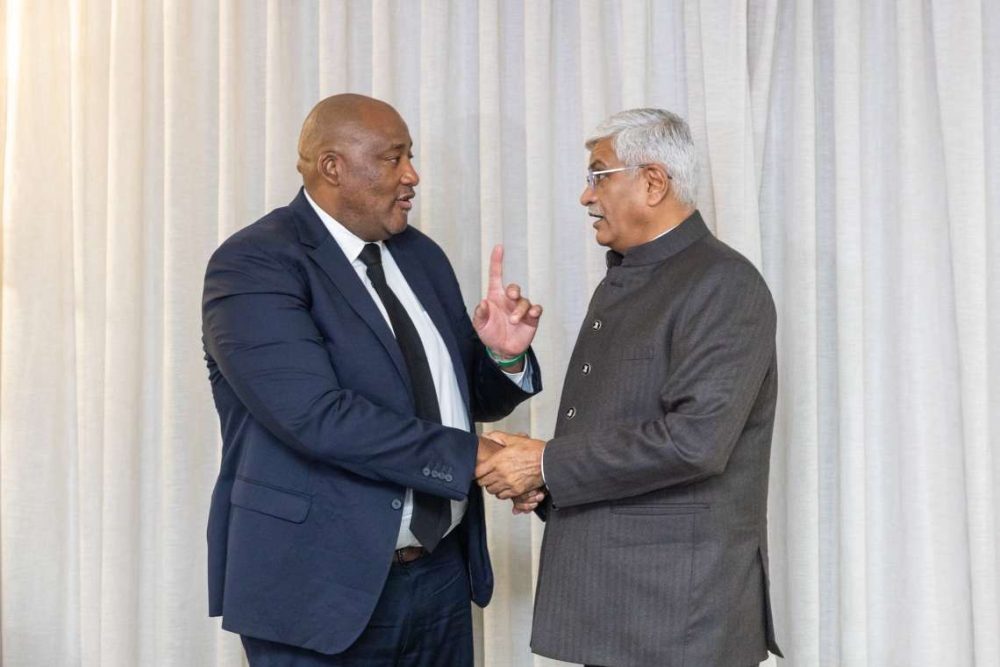The Red Cross said in a statement it helped escort the 1,359 disarmed members of the government forces and their families from Goma to the capital Kinshasa
Over a thousand disarmed Congolese soldiers and police officers, along with their families, have safely been transferred from the rebel-controlled city of Goma in eastern Congo to the capital over the last two weeks, the International Committee of the Red Cross announced Thursday.
The soldiers and police officers had been taking refuge at the United Nations Stabilization Mission in Congo’s base since January, when the decades-long conflict in eastern Congo escalated as the Rwanda-backed M23 rebels advanced and seized the strategic city of Goma.
The Red Cross said in a statement it helped escort the 1,359 disarmed members of the government forces and their families from Goma to the capital Kinshasa between April 30 and May 15th, traveling nearly 2,000 kilometers (1,240 miles) and across a front line.
The ICRC said it accompanied several convoys on the road, while transport by helicopter and plane was carried out by the United Nations Organization Stabilization Mission in Congo and the country’s armed forces.
“The operation has been a success, it has enabled those transported to Kinshasa to get back in touch with their families and, we hope, will reduce tensions in the city of Goma,” Myriam Favier, head of the ICRC’s sub-delegation in Goma, said.
The transfer of the government forces was the result of an agreement reached between the Congolese government, the rebels, the U.N. mission and the ICRC, which was called upon as a neutral intermediary, the Red Cross said, adding that it made sure that all the individuals had consented to being transported in the convoys. For security reasons, no media outlets were allowed to film or photograph the operation.
The news of the successful transfer comes amid persistent tensions in eastern Congo, where fighting between Congo’s army and M23 continues, despite both sides having agreed to work toward a truce last month.
Eastern Congo has been in and out of crisis for decades. Dozens of armed groups are vying for territory in the mining region near the border with Rwanda. The conflict has created one of the world’s largest humanitarian crises with more than 7 million people displaced, including 100,000 who fled homes this year.
The M23 rebels are supported by about 4,000 troops from neighboring Rwanda, according to U.N. experts, and at times have vowed to march as far as Congo’s capital, Kinshasa, about 1,600 kilometers (1,000 miles) to the west.
On Thursday, Congolese authorities accused Rwanda’s army and M23 of having killed dozens and abducted thousands in eastern Congo. Last week, Congo and Rwanda submitted a draft peace proposal as part of a U.S.-led process, with the Trump administration eyeing access to critical minerals in the resource-rich region.
Earlier this month, new round of dialogue between the government of the Democratic Republic of the Congo (DRC) and the March 23 Movement (M23) rebel group was held in Doha, the capital of Qatar, local media reported has reported.
According to Radio Okapi, a UN-supported outlet, representatives from both the DRC government and the M23 arrived in Doha over the weekend at the invitation of Qatari mediators. Sources familiar with the discussions said the current talks remain at a preliminary stage.
The M23 confirmed the arrival of their delegation in Doha to Xinhua, but the Congolese government has not yet issued a formal response. On April 23, the DRC government released a statement confirming that it had reached a consensus with the M23 on working together toward a truce that would contribute to the establishment of an effective ceasefire.
Massad Boulos, senior advisor for Africa at the US State Department, announced on the social media platform X that the DRC and Rwanda had submitted a draft peace agreement.
“I welcome the draft text on a peace proposal received from both DRC and Rwanda. This is an important step toward fulfilling the commitments made in the Declaration of Principles, and I count on their continued commitment to achieving peace,” said Boulos.
On April 25, the DRC and Rwanda signed a Declaration of Principles in Washington. The two sides agreed to produce a draft comprehensive peace agreement by May 2, underlining the urgency of translating these principles into concrete commitments.
The eastern DRC has been mired in decades of conflict, particularly offensives by the M23, a rebellion Kinshasa accuses Kigali of supporting. Rwanda, for its part, denies any ties to the rebel group, instead accusing the Congolese army of collaborating with remnants of the Democratic Forces for the Liberation of Rwanda, a group implicated in the 1994 genocide.


